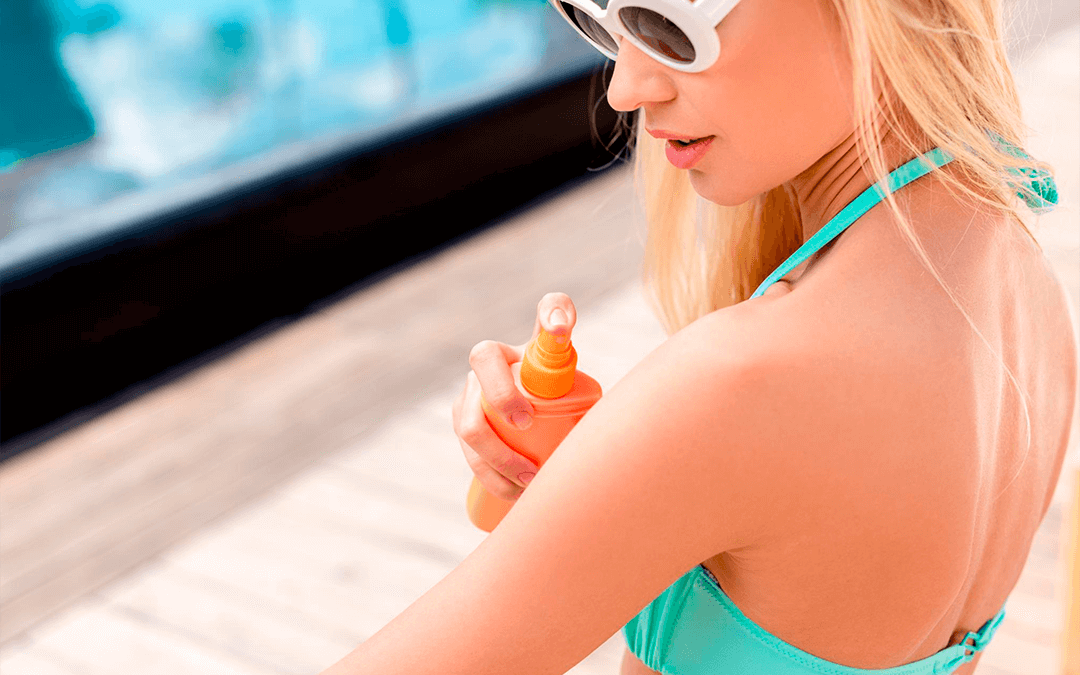Martha is going through a very active stage of her life right now. She works out in the park early in the morning, has a job that allows her to move around the city several times a day for errands, and some afternoons she takes her two children to the park after school, before returning back home. Plus, she loves camping on weekends, especially on the beach.
During her last appointment, the doctor recommended Martha to use sunscreen on a daily basis, “with an SPF 30”, but Martha was not quite sure what he meant or how to choose an appropriate sunscreen. Today we share information that might be useful for Martha and all our readers.
In simple words, the SPF, or sun protection factor, measures the protection of a sunscreen against UVB rays, These are the rays that cause sunburn and contribute to skin cancer.
The SPF number tells you how long it would take UV radiation from the sun to redden your skin compared to the amount of time it would take without applying any sunscreen. For example, for an SPF 30, it would take you 30 times longer to get burned than if you weren’t using any sunscreen at all. It is also important to note the different levels of protection; an SPF 15 will filter out approximately 93% of UVB rays, an SPF 30, 97%, and an SPF 50, 98%. No sunscreen will protect you 100%.
Now, within the spectrum of ultraviolet rays, there are two types of UV rays that can harm your skin:
UVB rays: they cause sunburn and play a key role in the development of skin cancer.
UVA rays: they cause skin damage leading to tanning, skin aging and wrinkles. Many of the sunscreens on the market do not protect you from these rays.
Protecting your skin and using the right sunscreen can help you avoid redness, burns, and sunspots on your skin. It can also help you keep your skin younger for longer, and avoid developing an uneven skin tone.
And how do I know which sunscreen suits me best?
You may think that finding the ideal sunscreen for you is as difficult as finding your other half, but it is easier than you think. And it will make you much happier too…
First of all, a sun protection factor of SPF 30 is an ideal number for those who want to protect their skin on a daily basis. Also, you should look for a broad-spectrum sunscreen, so that it protects you against both UVB and UVA rays.
If you practice water sports, your sunscreen should be waterproof. It is also worth looking at the fragrance that the product could include, or if you prefer a neutral one. Remember that fragrance will walk with you through an important part of your day (source: https://www.healthline.com/health-news/new-fda-rules-on-sunscreen#What-to-look-for-in-sunscreen)
The Sunscreen for Body SPF 30 from STREAM2SEA is a perfect example of these recommendations. This SPF goes as indicated, with broad-spectrum protection, and is waterproof for up to 80 minutes. Plus, it contains an antioxidant blend of green tea, tulsi, wakame, and olive leaf. It also contains safe, biodegradable ingredients that won’t pollute the water. Finally, since it has titanium dioxide as part of its ingredients, it is ideal for covering sensitive parts (eyelids, for example) that could irritate other parts of the body if the protector were to run with sweat, for example.
But be careful! An ideal protector goes hand in hand with good use. Make sure to follow the product instructions, and don’t forget to completely cover sensitive areas that you also need to protect such as your ears, eyelids, and lips (source: https://www.healthline.com/health-news/skin-cancer-danger-remember-to-cover-ears-lips-and-eyes-from-the-sun).
Protecting yourself from sun exposure is also a team effort. Do not forget to include adequate hours and amounts of exposure time. We also recommend clothing and accessories that help you protect your skin from UV rays. This way you will avoid wrinkles, sun spots, burns, and more serious conditions caused by inappropriate sun exposure. At Nature’s Discount, we join you on the path to a healthier life.



